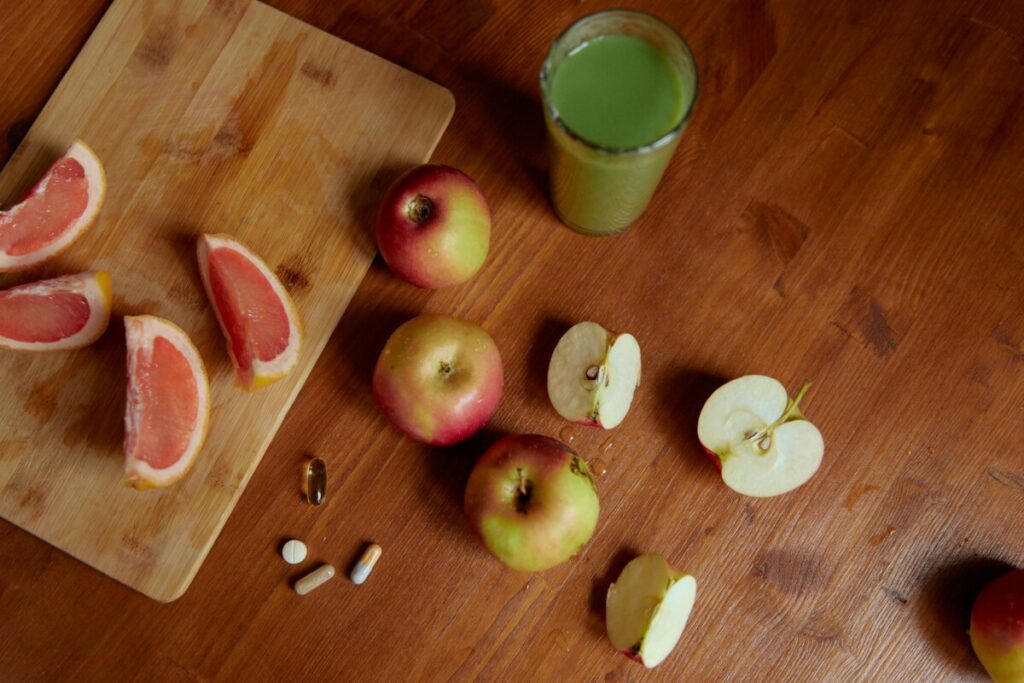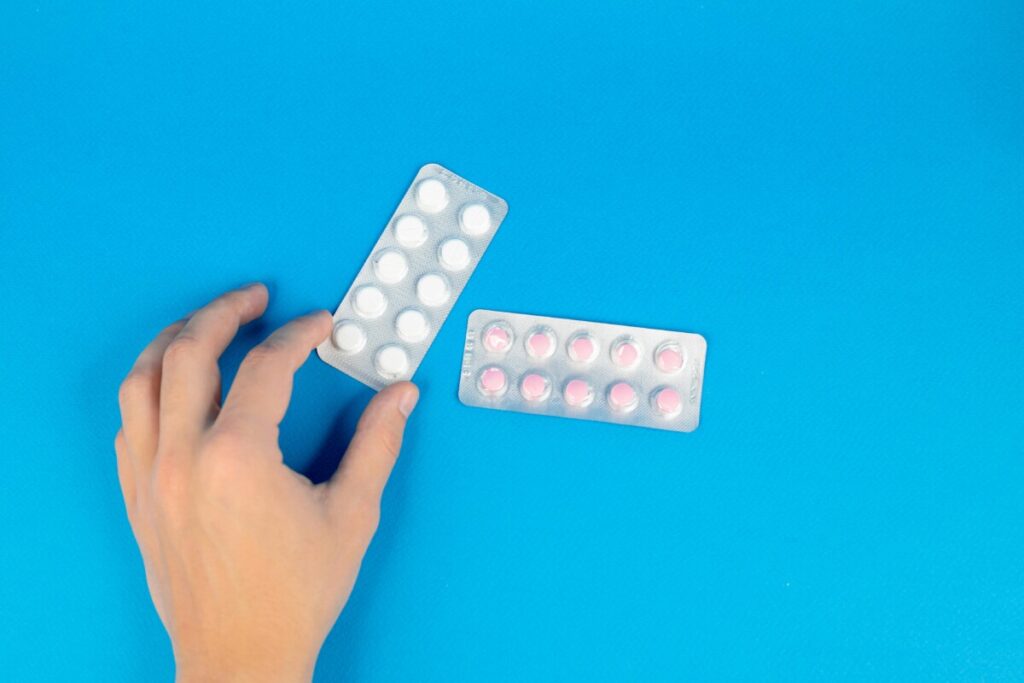Revitalize Vaginal Health: Top Supplements

Maintaining vaginal and intimate health is essential for overall well-being. It plays a crucial role in a woman’s physical comfort and emotional confidence. When these areas are neglected, it can lead to various issues that affect daily life.
Common problems such as dryness and recurring infections can significantly impact quality of life. Dryness may cause discomfort during intimate moments, while infections can lead to anxiety and distress. These issues are more prevalent than many realize and can stem from various factors, including hormonal changes, stress, and diet.
Fortunately, supplements can play a vital role in addressing these concerns. Clinically tested options like probiotics, vitamin D, and omega-rich oils can help restore balance and improve vaginal health. By incorporating these supplements into your routine, you can take proactive steps towards enhancing your intimate health and overall confidence.
Key Supplements for Intimate Health
affiliate link
Maintaining intimate health is vital, and certain supplements can significantly aid in this regard. Clinically tested probiotics like MED-01 have shown promising results for vaginal health. This complex includes five specific strains, such as Ligilactobacillus salivarius and Lacticaseibacillus rhamnosus, which help restore vaginal microbiota balance and reduce harmful bacteria.
Vitamin D is another essential supplement for intimate health. It plays a crucial role in women’s reproductive health by influencing fertility and pregnancy outcomes. Low vitamin D levels are linked to reproductive issues, including polycystic ovary syndrome (PCOS) and endometriosis. Supplementing with vitamin D may enhance overall reproductive function.
Omega-rich oils, particularly fish oil, have also been studied for their benefits in vaginal health. Research indicates that omega-3 fatty acids may enhance vaginal lubrication and improve sexual function. A recent trial found increased sexual satisfaction among those taking omega-3 supplements daily.
Incorporating these supplements into your routine can help support intimate health effectively. Always consult with a healthcare provider before starting any new supplement regimen.
Understanding Probiotic Strains
Probiotics play a vital role in promoting vaginal health, with specific strains proving particularly effective. Some key strains include:
Lactobacillus acidophilus: Known for its ability to prevent and treat imbalances like bacterial vaginosis (BV).
Lactobacillus rhamnosus: Important for maintaining overall vaginal balance.
Lactobacillus reuteri: Plays a crucial role in creating a healthy vaginal environment.
When considering dosages, it’s essential to understand that probiotics are usually measured in colony-forming units (CFU). However, specific dosage recommendations can vary widely, and consulting a healthcare provider is advisable.
Probiotics work by rebalancing vaginal pH levels, primarily through:
Maintaining an acidic environment, which helps prevent harmful bacteria from flourishing.
Adhering to vaginal surfaces, making it harder for pathogens to grow.
Potentially killing harmful bacteria directly, contributing to a healthier microbiome.
As noted by experts, obtaining these beneficial strains from whole foods, such as yogurt with live cultures, can be more effective than relying solely on supplements.
Label Red Flags to Avoid

affiliate link
Common Misleading Terms
When selecting supplements, be wary of terms like “doctor-recommended” or “clinically proven”. These claims can lack substantial evidence and may be mere marketing tactics. Always seek products with clear scientific backing.
Inactive Ingredients to Watch Out For
Many supplements contain harmful additives such as titanium dioxide, a known carcinogen, and gelatin, which may not be suitable for all consumers. Check the ingredients list for these and other potentially harmful substances.
Importance of Third-Party Testing
Because dietary supplements are not pre-approved by the FDA, third-party testing is crucial. Independent organizations verify that products match their labels, reducing the risk of consuming mislabeled or contaminated items. Look for certification seals to ensure quality and safety.
Diet Tweaks for Enhanced Results
Optimizing your vaginal health starts with the foods you choose to eat. Incorporating specific foods into your diet can significantly support your overall well-being. Consider adding:
Cranberries: These help prevent urinary tract infections (UTIs).
Sweet Potatoes: Rich in beta carotene and vitamin A, they promote healthy vaginal tissues.
Probiotic-rich foods: Yogurt and kefir can introduce beneficial bacteria to your microbiome.
Omega-3 Fatty Acids: Found in oily fish and flaxseeds, these enhance circulation and alleviate menstrual pain.
Dark Leafy Greens: Foods like kale and spinach improve circulation and are nutrient-rich.
Hydration also plays a crucial role in maintaining vaginal health. Drinking enough water supports hormonal balance and aids in cervical mucus production, which is vital for reproductive health. Aim for at least 10 cups of fluids daily, especially during pregnancy and postpartum, as highlighted in this resource.
Finally, combining these dietary choices with supplements can create a synergistic effect. A balanced diet rich in vitamins and probiotics can enhance the benefits of your supplements, promoting optimal vaginal health.
Expert Tips for Daily Support
affiliate link
To maintain optimal vaginal health, it’s essential to pair your supplements with effective hygiene habits. Begin by cleaning the external vaginal area daily with warm water. Avoid douching and scented soaps, as these can disrupt the natural pH balance and lead to irritation.
Establish daily routines that promote lasting freshness. Wear breathable cotton underwear and change out of wet clothing promptly to prevent moisture buildup. As health professionals recommend, practice good sexual hygiene by urinating after intercourse and washing the vulva with warm water.
“Routine screenings and discussions about sexual health are vital for prevention and early detection.”
Incorporating advice from health professionals can also enhance your routine. Regular gynecological exams are crucial for monitoring vaginal health. Discuss any unusual symptoms with your healthcare provider promptly. Remember, integrating nutrition and hydration into your daily life can further support your intimate health.
Frequently Asked Questions
How long does it take to see results? The timeline for seeing results from taking probiotics can vary. Generally, improvements may be observed within a few days to a few months. For specific conditions, such as diarrhea, results can be seen in as little as 2 days when probiotics are combined with rehydration therapy. However, for general gut health, it may take longer, with some studies showing significant improvements in 4 to 12 weeks.
Are there side effects? Yes, some individuals might experience side effects from probiotics, including an upset stomach, diarrhea, or gas. Allergic reactions, although rare, can occur, especially in those sensitive to ingredients like Lactobacillus. Consulting with a healthcare provider is recommended before starting any new supplement, particularly for those with underlying health conditions. More information on potential side effects can be found here.
Can I take these supplements together? Yes, combining vitamin D and probiotics is generally safe and may enhance their benefits. Research suggests that specific probiotic strains can improve the absorption of vitamin D, making the combination effective for overall health. For more details on this synergy, check this article.
Conclusion: Empower Your Health Journey
https://holisticwellnesswave.com/index.php/2025/10/07/cancer-fighting-foods-you-need-in-your-grocery-cart/
In summary, maintaining optimal vaginal and intimate health is crucial for overall well-being. By incorporating clinically tested probiotics, vitamin D, and omega-rich oils into your routine, you can effectively address common issues such as dryness and recurring infections. Remember, the timeline for seeing results from probiotics can vary, often ranging from a few days to several weeks, depending on individual factors like genetics and diet. It’s important to be aware of potential side effects, such as an upset stomach or allergic reactions, and to choose high-quality supplements, as noted in this article.
As you embark on your health journey, don’t hesitate to take action. Start by assessing your current regimen and consider how you might enhance it with these supplements. However, always consult with a healthcare provider before making any significant changes. They can provide personalized advice tailored to your specific needs, ensuring you make informed decisions for your health.
Take charge of your intimate health today and explore the benefits that a science-backed routine can offer!








